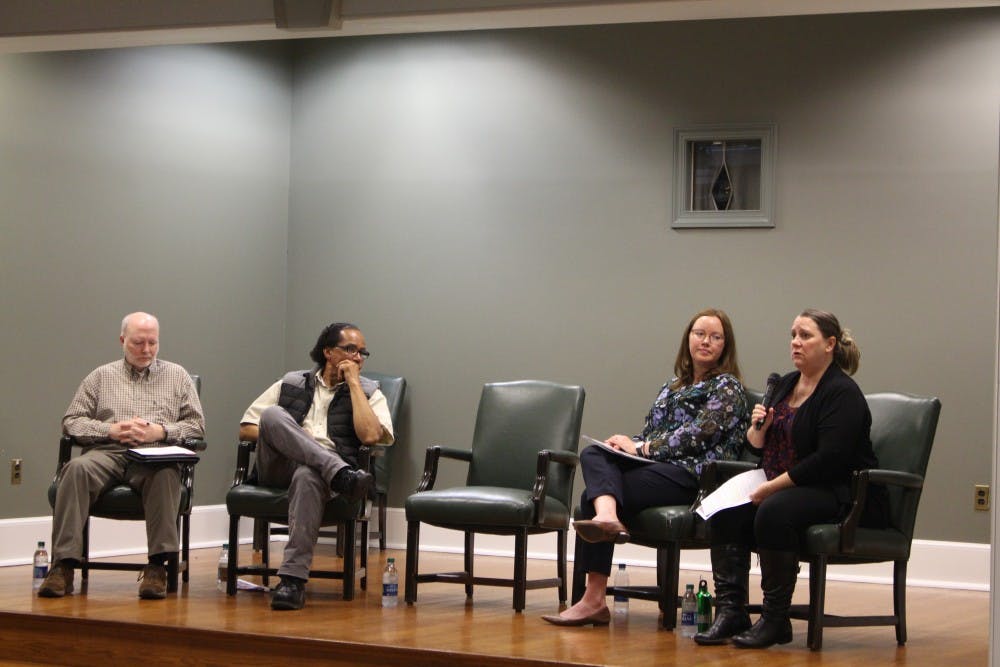Panelists focused on how to address homelessness and affordable housing in Orange County, in the wake of the Town Council passing an affordable housing bond, at this week's discussion in Wilson Library.
The UNC Roosevelt Institute, which hosted the panel, partnered with several Orange County organizations to bring “Finally Visible: A Panel Discussion on Homelessness in Chapel Hill” to the Wilson Library Family Pleasant Room on Feb. 6.
The Roosevelt Institute is a student think tank that seeks to discuss and formulate policy ideas amongst UNC students, faculty and outside organizations.
“The goal of our panel is to promote awareness and activism around local policy issues that affect our community. Homelessness and affordable housing are two issues that greatly affect the local Chapel Hill community,” said Emma Miller, co-director of the UNC Roosevelt Institute. "With the passing of the affordable housing bond in November, these issues are of great timeliness."
Miller said in order to provide a holistic representation of the issue of homelessness, the panel included representatives from the Inter-Faith Council for Social Service, the North Carolina Housing Finance Agency and the Orange County Partnership to End Homelessness.
Corey Root, homeless programs coordinator at OCPEH, said homelessness in the state and nationwide has decreased, but has increased in Orange County.
“We are going in the wrong direction,” she said.
Root said she believes homelessness is something complex dependent on three main factors — affordable housing, appropriate services and income — but anyone can help combat homelessness in simple ways.
“I think there are things that everyone could do, including students. Some things take two seconds, and some things take a day and some are ongoing and long-term commitments," Root said. “I think even things like sharing information about the current thinking around homelessness and the current data and solutions for ending homelessness is really helpful, and folks can do that in the form of liking tweets and Facebook posts, that kind of thing. It’s not too time-consuming, but it's very helpful.”




